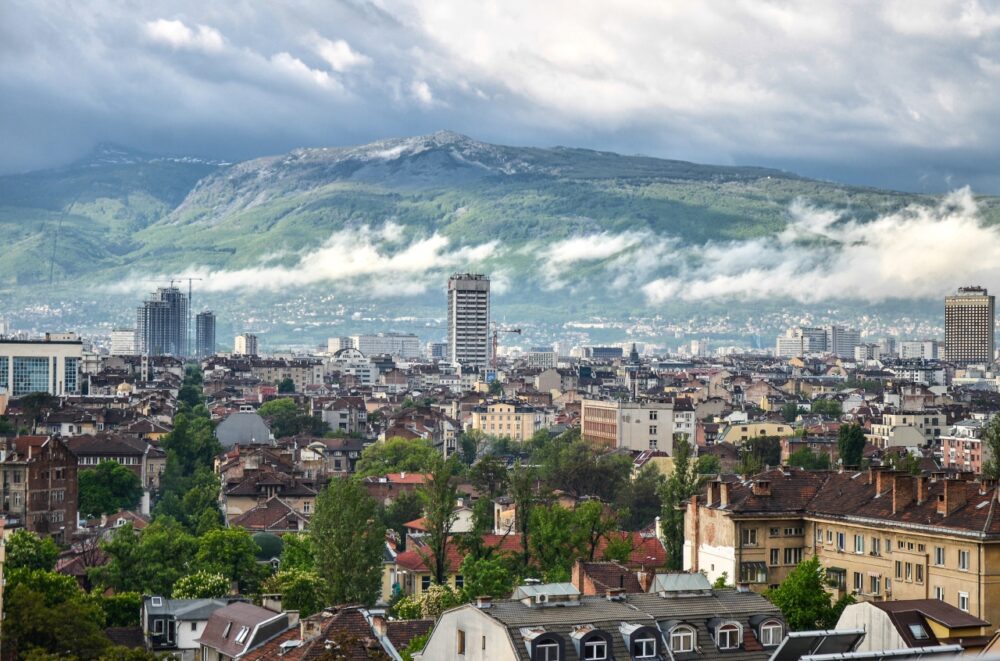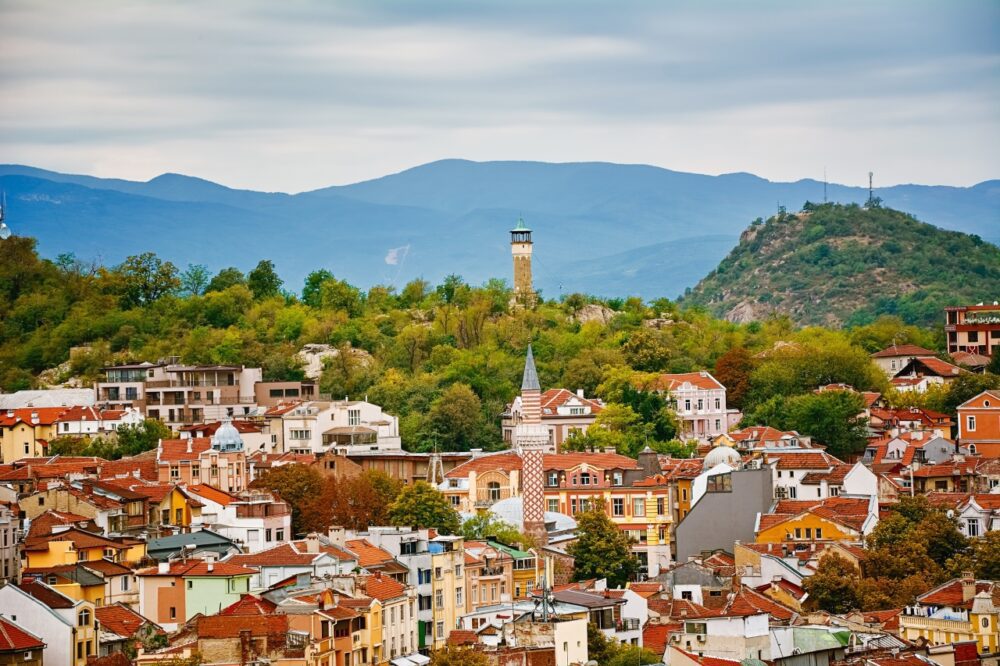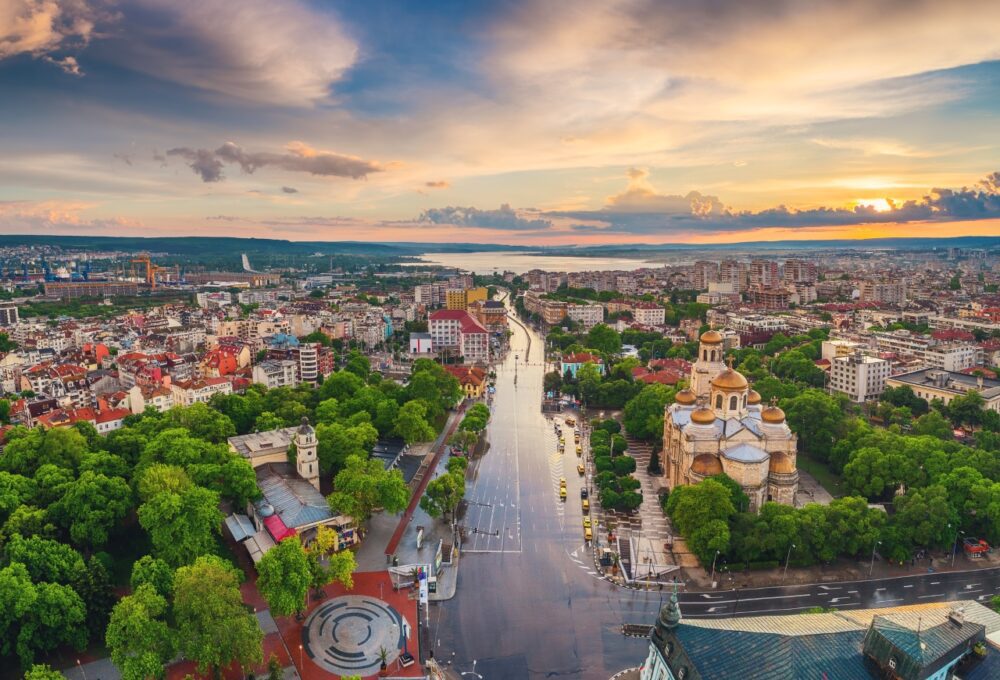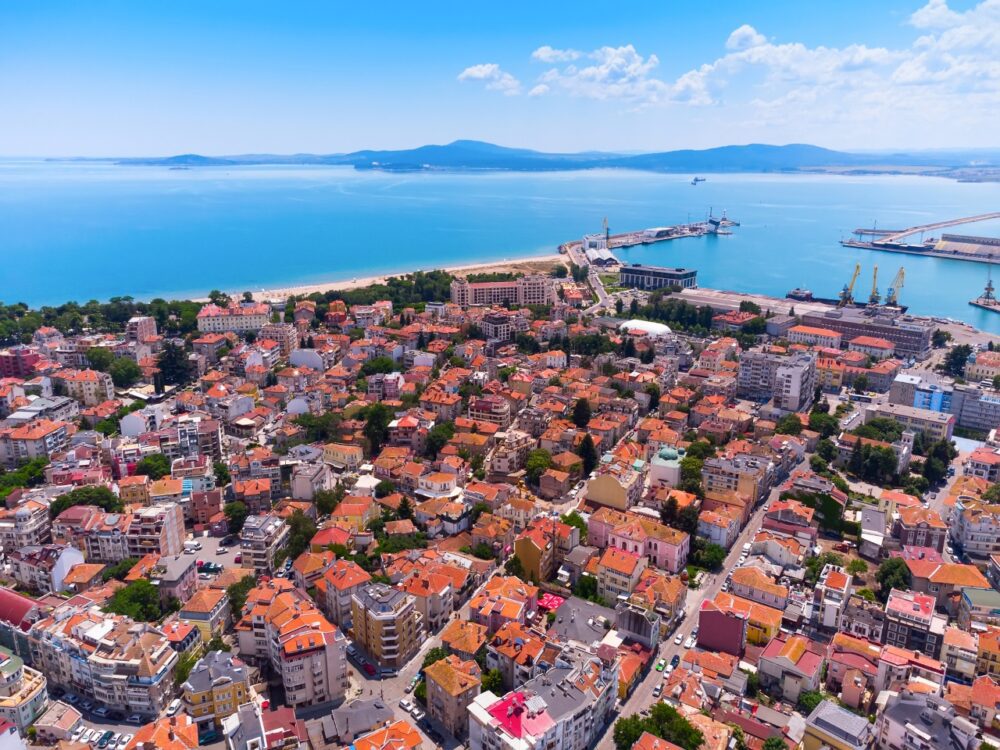
Introduction
Tucked away in southeastern Europe, Bulgaria is one of the most underrated travel destinations on the continent. Known for its stunning mountains, ancient cities, vibrant Black Sea coastline, and rich cultural history, this country offers a diverse range of experiences. Whether you’re strolling through Sofia’s lively streets, hiking in the Rila Mountains, or lounging on the beaches of the Black Sea, Bulgaria is a land of surprises.
When I first visited, I wasn’t sure what to expect, but it didn’t take long for Bulgaria to win me over. Its mix of ancient ruins, rugged landscapes, and warm hospitality make it a fantastic destination for travellers looking for both adventure and relaxation. Plus, Bulgaria remains remarkably affordable compared to other European countries, so you can enjoy a high-quality experience without breaking the bank. Let me share with you why Bulgaria should be next on your travel list.
Table of Contents
Reasons You Should Visit Bulgaria
1. Fascinating History and Culture
Bulgaria has a rich history that spans over 7,000 years, from the ancient Thracians to the Byzantine and Ottoman Empires. As you travel through the country, you’ll see layers of history everywhere—Roman amphitheatres, medieval fortresses, and monasteries nestled in the mountains. I particularly enjoyed Plovdiv, one of the oldest cities in the world, where you can walk through the well-preserved Roman Theatre, still used for performances today.
One of the best places to experience Bulgaria’s history is in Veliko Tarnovo, the medieval capital. The city’s Tsarevets Fortress, perched on a hill with sweeping views of the surrounding valleys, was the seat of Bulgarian kings and offers a fascinating look into the country’s past. If you love exploring old cities with a rich cultural heritage, Bulgaria will keep you engaged at every turn.
2. Affordable and Undiscovered
Unlike many other European destinations, Bulgaria has managed to stay relatively under the radar, which means fewer tourists and a much more authentic experience. Even in peak season, I found that the popular spots like Nessebar and Bansko were refreshingly uncrowded. Bulgaria is also incredibly affordable—you can stay in a comfortable hotel, eat a delicious meal, and explore the sights for a fraction of the cost you’d pay in more touristic European countries.
The affordability extends to everything from transport to accommodation and food. In Sofia, for example, I stayed in a charming boutique hotel in the city centre for less than €50 per night, and enjoyed a fantastic meal of traditional shopska salad and kavarma (a hearty stew) for just a few euros. Whether you’re a backpacker on a budget or looking for a luxury experience, Bulgaria offers great value for money.
3. Stunning Natural Landscapes
From the snow-capped peaks of the Rila Mountains to the sun-soaked beaches of the Black Sea, Bulgaria’s natural beauty is diverse and spectacular. If you’re into hiking, skiing, or just enjoying the outdoors, Bulgaria has it all. One of my favourite experiences was hiking to the Seven Rila Lakes, a series of glacial lakes in the Rila Mountains that offer some of the most breathtaking views I’ve seen in Europe.
For winter sports lovers, Bansko is a popular ski resort town, offering excellent slopes at affordable prices. In the summer, the mountains are perfect for hiking and mountain biking. If you prefer the coast, the Black Sea beaches in Varna and Burgas are ideal for soaking up the sun or taking a dip in the warm, clear waters. Whether you’re an adrenaline junkie or just looking to unwind in nature, Bulgaria’s landscapes won’t disappoint.
4. Delicious Food and Wine
Bulgarian cuisine is a delicious mix of Balkan, Turkish, and Mediterranean influences, with an emphasis on fresh, seasonal ingredients. You’ll find hearty stews, grilled meats, and plenty of vegetables, often accompanied by freshly baked bread or banitsa, a traditional pastry made with cheese and eggs. One dish you absolutely have to try is shopska salad, a refreshing mix of tomatoes, cucumbers, onions, and sirene cheese, drizzled with olive oil.
Bulgaria also has a surprisingly rich wine tradition, with vineyards producing excellent reds and whites that you can sample in local wineries. I spent a day in the Thracian Valley, one of the country’s top wine regions, where I tasted some delicious Mavrud and Melnik wines. Don’t miss the chance to visit a traditional Bulgarian restaurant, or mehana, where you can enjoy local dishes with a glass of homemade wine or rakia (a strong fruit brandy).
5. Warm Hospitality and Local Traditions
One of the things that struck me most during my time in Bulgaria was the warmth and hospitality of the people. Whether I was in a big city or a small mountain village, locals went out of their way to make me feel welcome. Bulgarians are proud of their culture and love sharing their traditions with visitors. If you’re lucky, you might be invited to join in a local festival or celebration, such as Kukeri, a traditional winter festival where people wear elaborate costumes and masks to chase away evil spirits.
I also had the chance to stay in a guesthouse in Koprivshtitsa, a charming town known for its well-preserved 19th-century architecture. The family who ran the guesthouse treated me like one of their own, serving home-cooked meals and sharing stories about the town’s revolutionary past. This kind of personal connection makes travelling in Bulgaria a truly special experience.
Best Places to Visit in Bulgaria
1. Sofia

Sofia, the capital, is a city that combines the old and the new in fascinating ways. It’s one of Europe’s oldest cities, with ancient Roman ruins sitting side by side with grand Orthodox churches and modern buildings. One of the highlights of my trip was visiting the Alexander Nevsky Cathedral, a massive Neo-Byzantine church with its golden domes shining in the sunlight. The interior is equally stunning, with intricate frescoes and mosaics.
For a glimpse into Bulgaria’s communist past, head to the Museum of Socialist Art, where you can see statues, paintings, and propaganda from the country’s communist era. If you need a break from the city, Vitosha Mountain is just a short drive away and offers great hiking trails and views over Sofia. After a day of sightseeing, I enjoyed sitting in one of the many cafés along Vitosha Boulevard, watching the world go by with a cup of strong Bulgarian coffee.
2. Plovdiv

Plovdiv is often described as one of Europe’s most beautiful cities, and after spending time there, I completely agree. As one of the oldest continuously inhabited cities in the world, Plovdiv is packed with history, from its Roman ruins to its Ottoman-era houses. I started my visit with a walk around the Old Town, where you’ll find colourful 19th-century mansions and charming cobbled streets. The Roman Amphitheatre is a must-see, and if you’re lucky, you can catch a concert or performance there—seeing a show in a 2,000-year-old theatre is an unforgettable experience.
Plovdiv is also a vibrant cultural hub, with a thriving arts scene. The Kapana district, once a craftsman’s quarter, is now home to trendy cafés, galleries, and street art. I spent hours wandering through its narrow streets, stopping for coffee and soaking up the creative atmosphere. Plovdiv’s unique blend of ancient history and modern culture makes it a city you won’t want to miss.
3. Varna

Known as the “Sea Capital of Bulgaria,” Varna is a lively coastal city on the Black Sea. It’s a popular summer destination for both locals and tourists, thanks to its long sandy beaches and vibrant nightlife. I spent a few days relaxing on Golden Sands Beach, one of the most famous beaches in Bulgaria, and enjoying fresh seafood at one of the many seaside restaurants.
Varna isn’t just about beaches, though. The city is also home to some fascinating historical sites, like the Roman Baths, which are the largest Roman ruins in Bulgaria. Another highlight is the Dormition of the Mother of God Cathedral, a stunning Orthodox church with beautiful frescoes. If you’re looking for some culture, the Varna Archaeological Museum is home to the world’s oldest gold treasure, dating back more than 6,000 years.
4. Burgas

Located further down the Black Sea coast, Burgas is another seaside gem, but with a more laid-back vibe compared to Varna. One of the highlights of my visit was Sea Garden, a massive park that stretches along the coast, offering beautiful views of the sea and plenty of spots to relax. I loved wandering through the park in the late afternoon, watching the sunset over the water.
Burgas is also a great base for exploring the surrounding area. Just a short drive away is Nessebar, a UNESCO World Heritage Site and one of the oldest towns in Europe. The old town is perched on a small peninsula, and walking through its narrow streets, lined with ancient churches and wooden houses, felt like stepping back in time. Whether you’re looking to explore historic sites or just relax by the sea, Burgas is the perfect place to do both.
5. Veliko Tarnovo
If you’re a history buff, Veliko Tarnovo is a must-visit. Once the medieval capital of the Bulgarian Empire, the city is home to Tsarevets Fortress, a massive hilltop fortress that offers stunning views over the town and surrounding valley. I spent a full day exploring the fortress, walking along the ancient walls and visiting the ruins of the royal palace and the Patriarchal Cathedral.
The town itself is incredibly picturesque, with its terraced houses built along the curves of the Yantra River. Veliko Tarnovo is also known for its lively arts scene and traditional crafts, and I loved browsing the local shops for handmade pottery, jewellery, and textiles. The city’s rich history and cultural vibe make it a fascinating place to explore.
6. Bansko
Nestled at the foot of the Pirin Mountains, Bansko is Bulgaria’s top destination for winter sports. I visited in the winter, and the ski slopes were fantastic—well-groomed runs, modern lifts, and a fraction of the cost of skiing in the Alps. Whether you’re a beginner or an experienced skier, Bansko has something for everyone. And after a long day on the slopes, there’s nothing better than warming up in one of the local mehanas, where you can enjoy traditional Bulgarian dishes by the fire.
In the summer, Bansko transforms into a haven for hikers, with miles of trails that take you through some of the most stunning landscapes in the country. One of the highlights of my trip was hiking to Vihren Peak, the highest in the Pirin range, with breathtaking views of the surrounding mountains and valleys. Bansko is a year-round destination for nature lovers and adventure seekers.
7. Nessebar
Nessebar is a small town on the Black Sea coast that’s rich in history and charm. The old town is a UNESCO World Heritage Site, and it’s easy to see why. The narrow streets are lined with ancient churches and traditional wooden houses, and everywhere you look, there’s a stunning view of the sea. I spent a day wandering through the town, visiting the Church of Christ Pantocrator and the Church of St. Sophia, both of which are beautifully preserved examples of Byzantine architecture.
Nessebar is also known for its beaches, and I loved spending a lazy afternoon on the sandy shores, with the old town as a backdrop. The combination of history and beach relaxation makes Nessebar a unique destination on the Bulgarian coast.
8. Koprivshtitsa
Koprivshtitsa is a beautifully preserved village that feels like a living museum. The town played a key role in Bulgaria’s fight for independence from the Ottoman Empire, and its 19th-century houses have been turned into museums, each telling the story of Bulgaria’s revolutionary past. I visited the Oslekov House, a beautifully restored mansion filled with traditional Bulgarian furnishings and artefacts.
The town is small, but it’s packed with charm, and walking through its cobbled streets, past colourful houses and flower-filled gardens, is a delightful experience. Koprivshtitsa is also a great place to experience Bulgarian folk traditions, and if you’re lucky, you might catch a local festival or performance.
9. Ruse
Located on the banks of the Danube River, Ruse is known as “Little Vienna” for its grand 19th-century architecture. The city has a distinctly European feel, with wide boulevards, elegant buildings, and a lively café culture. I started my visit at Svoboda Square, the heart of the city, and from there explored some of Ruse’s beautiful buildings, like the Dohodno Zdanie Theatre and the Regional History Museum.
Ruse is also a great base for exploring the nearby Rusenski Lom Nature Park, which offers fantastic hiking trails and the chance to visit the Ivanovo Rock Churches, a UNESCO-listed site famous for its rock-hewn churches and monasteries. The frescoes inside the churches are stunning and offer a glimpse into Bulgaria’s medieval past.
10. Blagoevgrad
Blagoevgrad is a lively university town nestled in the foothills of the Rila Mountains. It’s a great base for exploring the surrounding area, including the famous Rila Monastery, Bulgaria’s largest and most iconic monastery. The monastery’s frescoes and architecture are breathtaking, and it’s one of the country’s most important cultural and religious sites.
Blagoevgrad itself has a youthful vibe, thanks to its large student population, and there are plenty of cafés, bars, and restaurants to enjoy. I loved wandering through the town’s old quarter, with its narrow streets and traditional houses, before heading out into the mountains for a hike.
Travel Tips for Bulgaria
Getting Around Bulgaria
Bulgaria has an extensive and affordable public transport system. Buses are the most common way to travel between cities and towns, with regular services connecting places like Sofia, Plovdiv, and Varna. Trains are slower but scenic, especially on routes like Sofia to Burgas. Renting a car is a great option for exploring rural areas and mountain regions like Rila or Bansko, though be aware that some roads can be in poor condition. In cities, taxis are cheap, but always insist on the meter being used to avoid overcharging.
Best Time to Visit Bulgaria
The best time to visit Bulgaria depends on your plans. For hiking and outdoor activities, spring (April to June) and autumn (September to October) offer mild temperatures and fewer crowds. If you’re heading to the Black Sea coast, summer (June to August) is ideal, with hot weather and lively beach resorts like Sunny Beach and Golden Sands. For skiing, December to March is perfect for hitting the slopes in Bansko or Borovets. Each season has its own charm, so plan according to what you want to experience.
Passport and Visa Requirements for Bulgaria
Bulgaria is part of the EU, but not in the Schengen Area, so make sure your passport is valid for at least three months beyond your planned departure. EU/EEA citizens can enter Bulgaria with just an ID card, while visitors from countries like the US, UK, Canada, and Australia can stay visa-free for up to 90 days. If you’re planning to travel to neighbouring countries, check their entry requirements too.
Currency and Banks in Bulgaria
Bulgaria uses the Bulgarian Lev (BGN), and while credit cards are widely accepted in cities and tourist areas, cash is still king in smaller towns and rural regions. ATMs are easy to find in cities like Sofia, Plovdiv, and Varna, but it’s a good idea to carry some cash when venturing into the countryside. Avoid currency exchange offices at airports and tourist hotspots, as they often offer poor rates—use ATMs or banks for the best exchange rates.
Language and Useful Phrases to Know
The official language in Bulgaria is Bulgarian, which uses the Cyrillic alphabet, so it can be helpful to familiarise yourself with basic letters and words before you arrive. In tourist areas, English is spoken by many younger people, but learning a few Bulgarian phrases will go a long way. Try “Zdravei” (hello), “Blagodarya” (thank you), and “Molya” (please) to break the ice with locals. Bulgarians appreciate visitors making an effort with their language.
Budgeting and Costs for Bulgaria
Bulgaria is one of the most budget-friendly destinations in Europe. You can enjoy hearty meals at local taverns (called mehanas) for just a few euros, and public transport is very affordable. Accommodation ranges from budget hostels to luxury hotels, with plenty of mid-range options in between. Entrance fees to museums and historical sites are usually low, making Bulgaria a great destination for those travelling on a budget while still wanting to explore its rich culture and natural beauty.
Conclusion
Bulgaria is a country that offers so much more than meets the eye. Whether you’re exploring ancient cities, hiking in the mountains, or relaxing on the Black Sea coast, there’s something for every kind of traveller. Its rich history, stunning landscapes, delicious food, and warm hospitality make it a destination that deserves a spot on your travel list.
What I love most about Bulgaria is how it combines old-world charm with modern adventure. From the bustling streets of Sofia to the quiet beauty of Koprivshtitsa, Bulgaria offers a unique travel experience that’s both affordable and unforgettable. So, if you’re looking for a destination that offers history, culture, and nature in one package, look no further than Bulgaria. Trust me, you’ll leave with a deep appreciation for this underrated gem of Eastern Europe.
